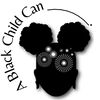|
Today, we celebrate Dr. Johnetta B. Cole. Fiskite. Woman of Delta Sigma Theta. First Black woman president of Spelman College, founded for the education of Black women -- and she served as president of both all-women's HBCUs, coming out of retirement to take the helm of Bennett College in North Carolina, too. She is the granddaughter of Florida's first Black millionaire, Abraham Lincoln Lewis. And she helped build the W. E. B. Du Bois Department of African-American Studies as a faculty member at the University of Massachussetts. She has been a college president, a museum director -- upon retiring from Bennett, she served as Director of the National Museum of African Art in Washington, D.C. -- and she served on former President Bill Clinton's transition team for education in 1992. Dr. Cole is currently the president and chair of the National Council of Negro Women, an advocacy organization for women’s rights and civil rights. She is living Black history. We call her doctor because she has a doctorate of philosophy degree, and even though she isn't a medical doctor, she has dedicated her whole career to helping others and making a difference through education, civic activity, and even art. Discussion Questions Young Students (K3-2nd Grade) Dr. Cole once said, "Faced with what seems like an impossible task, a group of folks will do well to remember the African proverb: When spider webs unite, they can tie up a lion." What is something that you think is really hard or even impossible to do alone that can be made easier by coming together with other people? Middle Students (Grades 3-8) Dr. Cole served as president of Spelman College, an all-women's school in Atlanta, Georgia, from 1987-1997. The school's motto, "A Choice to Change the World" is in some ways a testament to Dr. Cole's own life. What choice will you make to change the world around you to make it better place for everyone in it? High School Students (Grades 9-12) Dr. Cole believed that "The content of the curriculum should never exclude the realities of the very students who must intellectually wrestle with it. When students study all worlds except their own, they are miseducated." Amid debated in 36 states to limit the way Black history -- American history -- is taught in schools, what do you think is the impact of these bills on Black and Native students who have to hear a different version of their histories in school? For Educators/Adults How are you showing up for the Black students in your classroom? Are you perpetuating miseducation by asking them to intellectually wrestle with content that negates their lived experiences? How can you help students them to properly contextualize what they're reading in curricular materials with information that validates their lived experiences?
0 Comments
Leave a Reply. |
About the SeriesA Black Child Can was founded to create a better world for students by empowering the adults around them with the knowledge they need to advocate on their behalf. The 2022 blog series builds on this foundation, encouraging educators to participate in the discussion and reflect on the ways they're showing up for their students. ArchivesCategories |
||||||||


 RSS Feed
RSS Feed